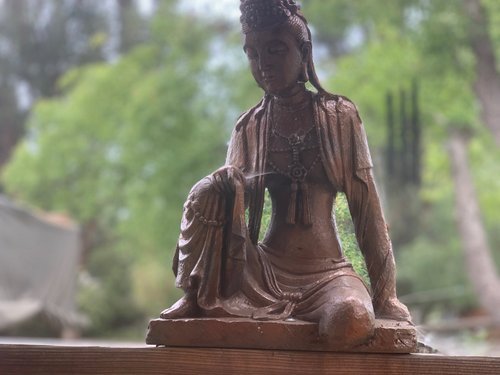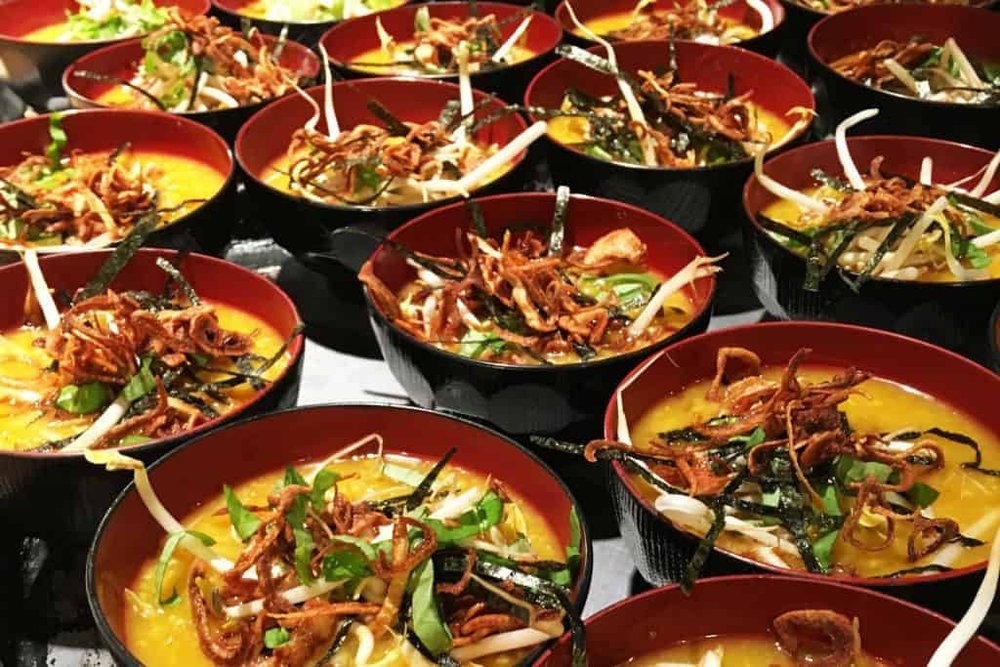READY FOR A SPRING CLEANING?
This May we’re excited to offer a special opportunity to refine and deepen your physical, emotional, and energetic bodies for a true inner cleansing.
Often after the heaviness or darkness of winter, it can feel difficult to muster up the motivation for meaningful and transformational spiritual practice. For teachers and healers, our inspiration and energy can feel dulled.
We’ll come together as Sangha (spiritual family) to be held by the ancient teachings of Traditional Chinese Medicine (5 Element Theory) and Zen Buddhism. This Yin Yoga & Meditation Spring Retreat will re-establish essential foundations for all of us to uplevel our relationship to a life lived in mindfulness.
We will refine the inner practice field and our dedication to evolution.
Daily meditation and the monastic atmosphere with the Buddhist Monks who reside at this center creates a unique container that enhances our awakening
Join us as we immerse in the heart of the Buddha's teachings and the living art of Yin Yoga….
“Deep in the wild mountains is a trading post where you can exchange the stress and noise of everyday life for eternal Light.
Go there on retreat.
In the still center of luminous empty essence is a blissful tremor, the heartbeat of the universe: the Great Dakini breathing as Love Itself.
Go there on retreat.
In the background of the gap between thoughts and breaths awareness naturally recognizes itself as non-conceptual wisdom shining continuously.
Go there on retreat.”
— Milarepa
Each day we will layer physical, emotional, and energetic engagements of an immersive practice life:
PHYSICAL | Home of the Prana Vessel: Yin & Yang asana & meditative walking, as well as options for nearby hikes & hot springs!
EMOTIONAL | Home of the Dharma: Buddhist philosophy & meditation instruction, examining inner methods to relate to our psychological parts
ENERGETIC | Home of the Hara: Pranayama & Chi Enrichment Practices to invigorate and circulate the pranic field
and organize around the monastic rhythm of retreat life (optional Zazen with the Monks: Early morning and afternoon traditional meditation sessions) alongside a wholesome integration of the 3 Wisdom Realms of the body:
HEAD | dharma & internal family systems method: Methods of Mindfulness, Shamata, Foundations of Mind, Causes of Suffering, The 4 Noble Truths, Buddhist Principles, Philosophy, & Psychology, Internal Family Systems.
HEART | divine abodes ((brahmavihāras or boundless states): Intermingling Heart Methods of Karuna Metta Muddita Kshama
HARA | development of Self: Organ health, Mapping the Subtle Body, Vital Center, Yin
We will cultivate the capacity to remain truly centered in 'hara' – that region of the lower abdomen that is recognized in Japan as both the physical and spiritual centre of gravity of the human being.
Hara is a way of being that involves our whole being and that can put us into direct inner contact with the aware inwardness or ‘soul’ of all other beings and its divine source.
Daily Schedule
Please note the schedule may be slightly refined upon arrival.
Thursday, May 30
3-5pm check in
5pm arrival circle
6pm dinner
8:15 Zazen
Friday, May 31
5am Zazen
8:30 breakfast
10-12pm Session I
12:30pm lunch
3:30-5:30 Session II
6pm dinner
8:15pm Zazen
Saturday, June 1
5am Zazen
8:30am breakfast
10-12pm Session I
12:30pm lunch
3:30-5:30pm Session II
6pm dinner
8:15pm Zazen
Sunday, June 2
5am Zazen
8:30am breakfast
10-11:30am Closing Session
12pm checkout
OPTIONAL ADDITIONAL PRACTICE TO BE IN THE RHYTHM OF THE MONKS IN SANCTUARY
morning rhythm
4:30 Wake-up Bell
4:45 Han*
5:00 Zazen*
5:40 Kinhin*
evening rhythm
8:00 Han
8:15 Zazen
Han: In Zen monasteries, a wooden board that is struck with a mallet to summon monastics to the zendo or other practice hall, as well as serving as a time-keeping signal during the monastic day.
Zazen: Seated still meditation. Unlike meditation done in some other spiritual traditions, zazen usually does not involve concentrating one’s mind on a subject, nor is the aim to blank out one’s mind completely. Rather, being aware of one’s breath is recommended. Most zen teachers maintain that zazen is essential to practicing zen.
Kinhin: Walking meditation. Although its meditative aspect is of prime importance, kinhin also serves the purpose of exercising the legs after periods of zazen, helping to establish a useful rhythm of stillness and motion. In Soto practice, the pace is quite slow.
LOCATION & ACCOMODATIONS
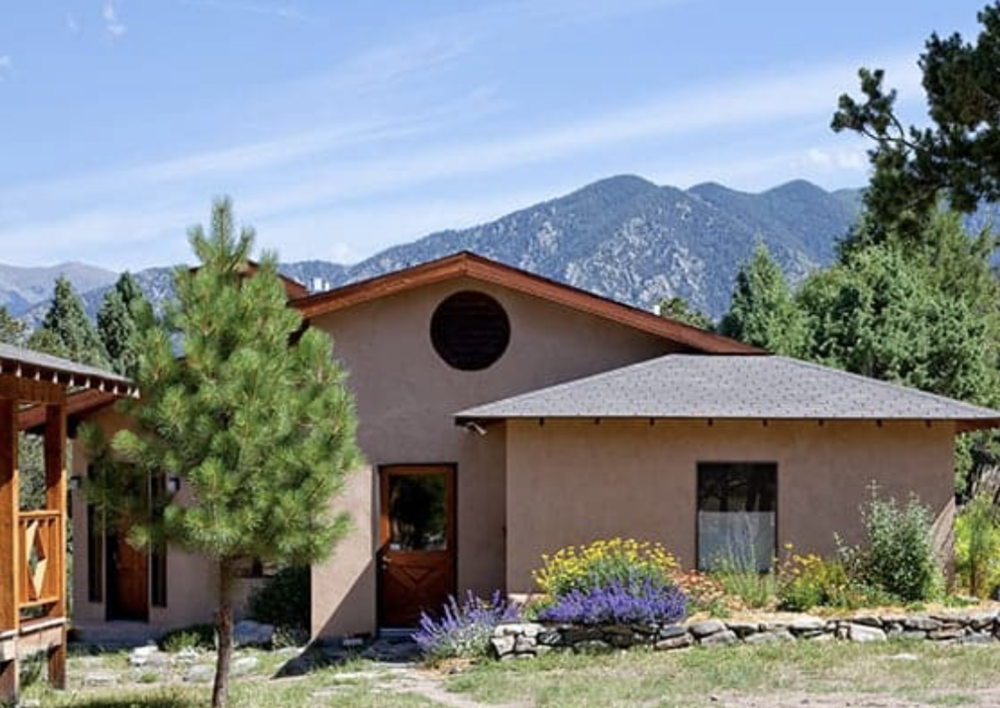
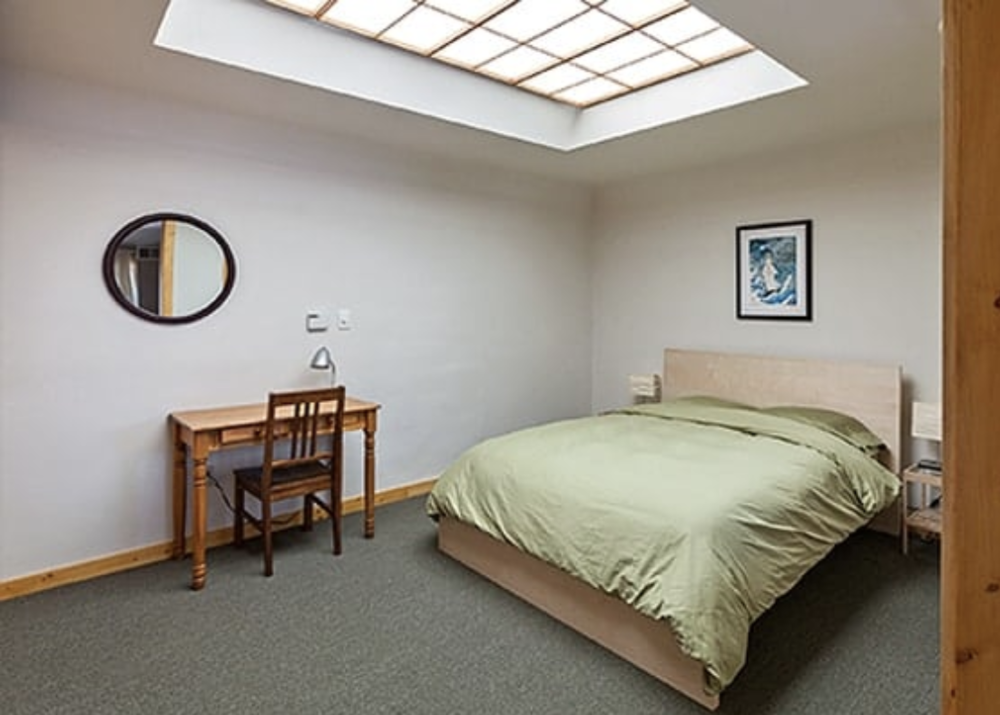
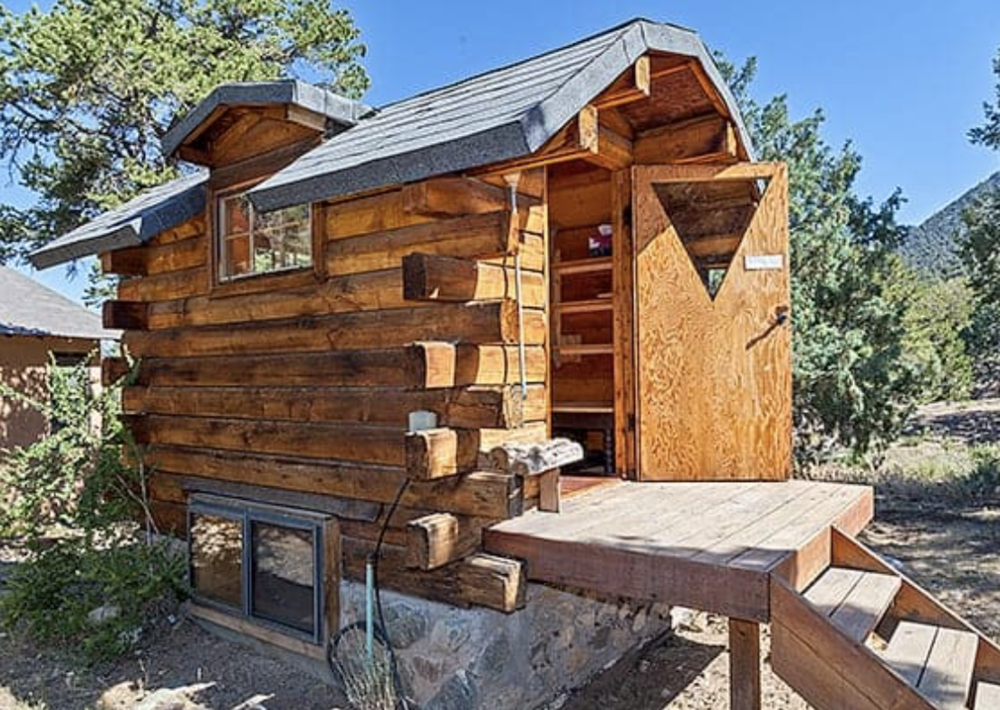

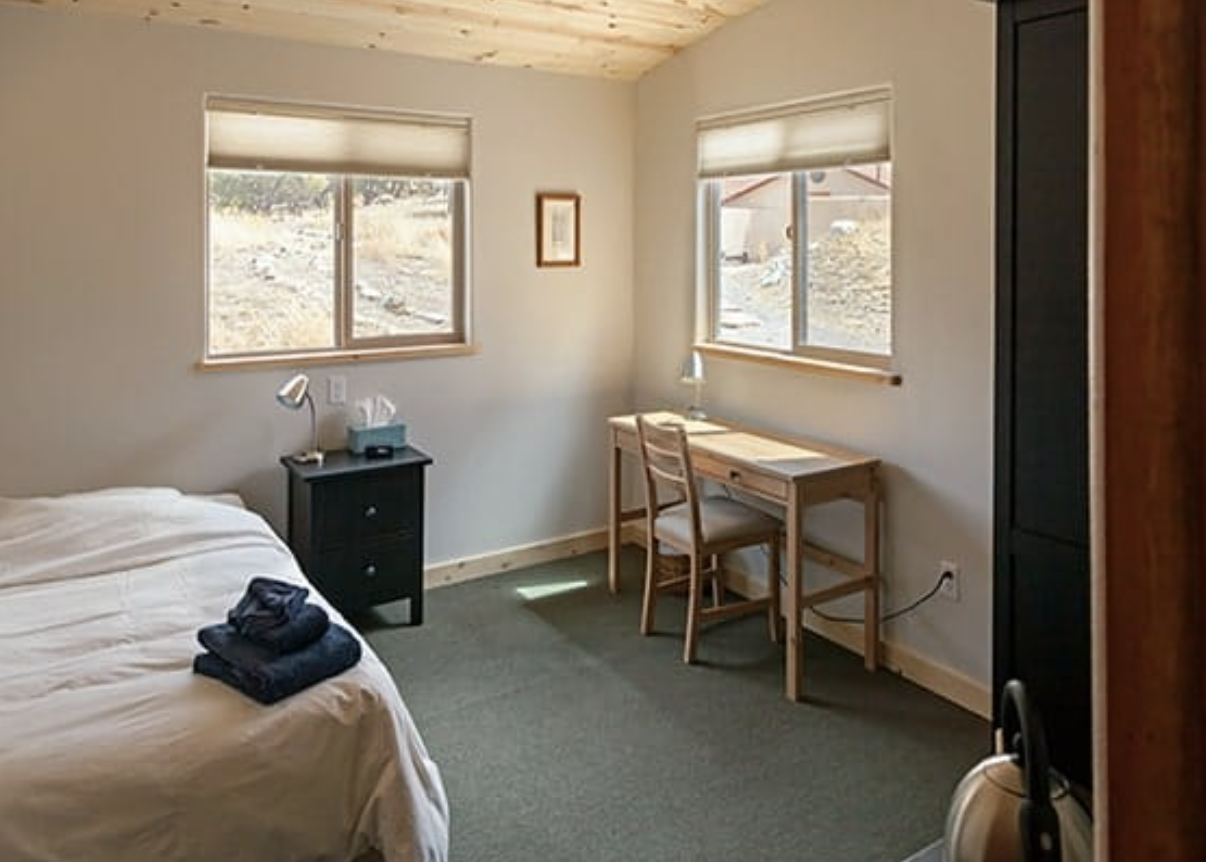
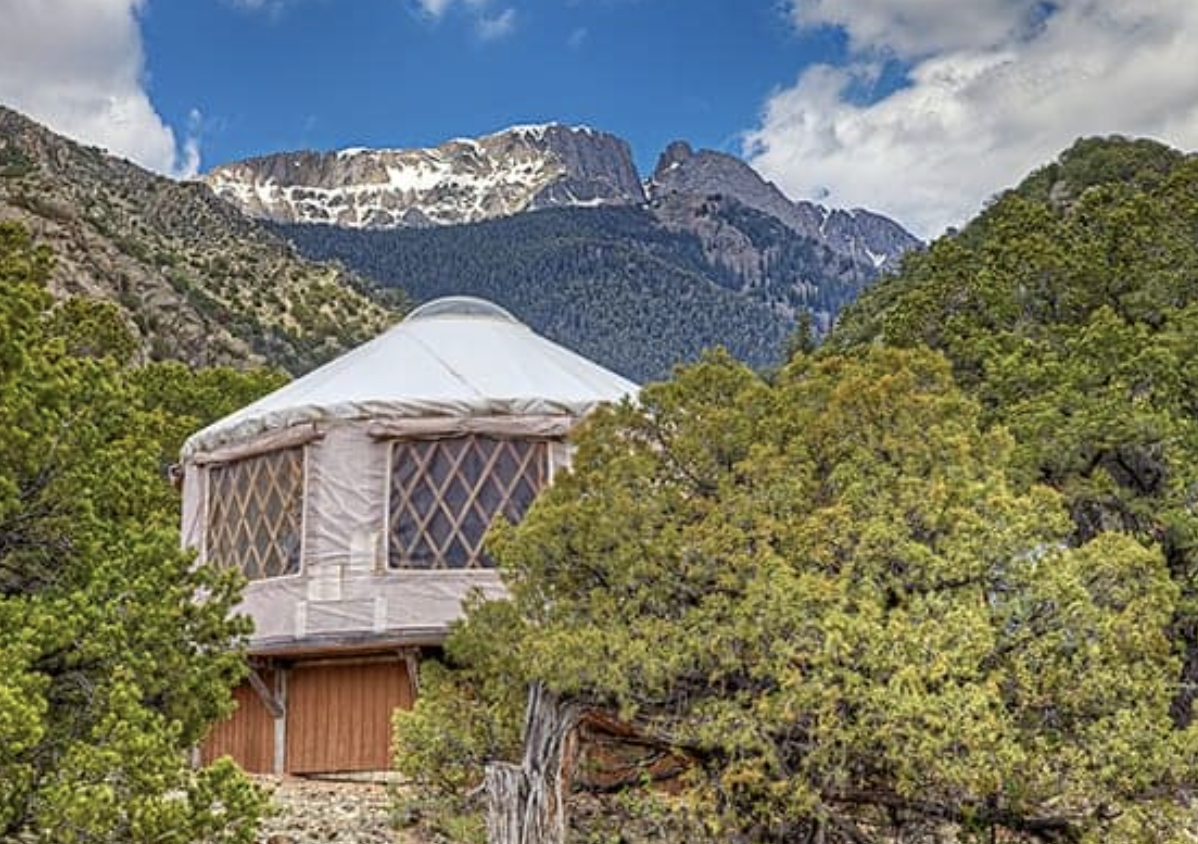
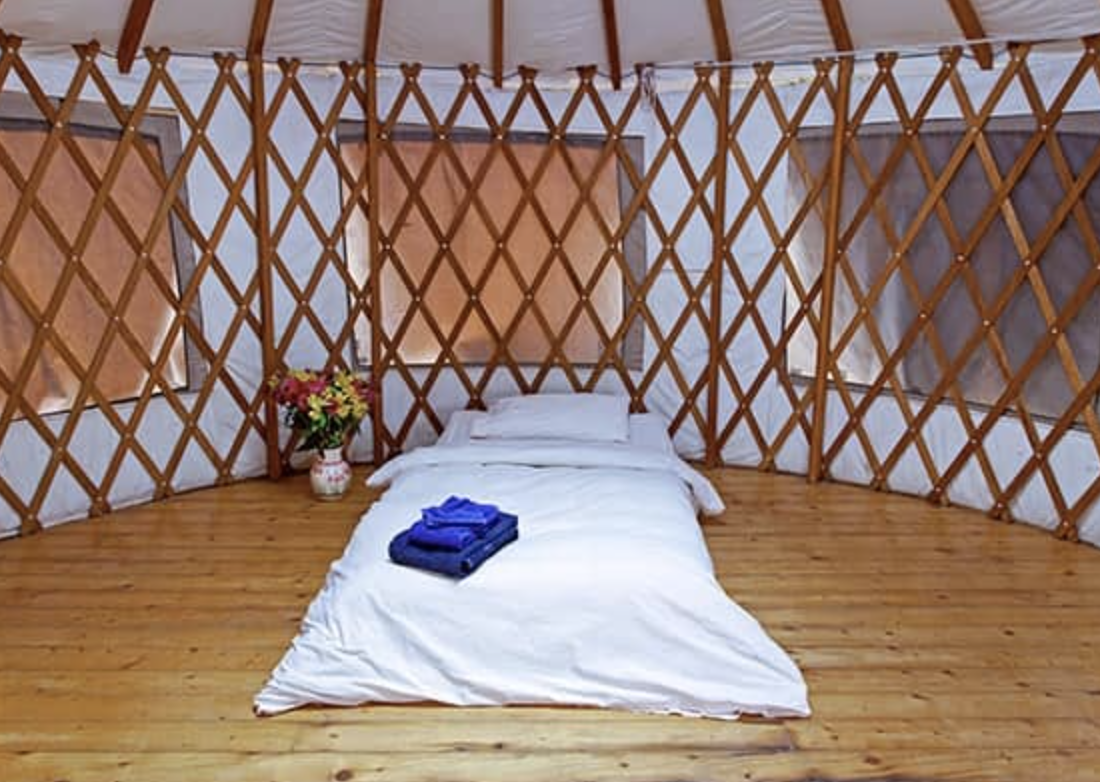

Residing in guest houses, cabins, or huts, we will be practicing in the traditional zen mediation halls, private tea houses, and world renowned interfaith Practice Dome.
Crestone Mountain Zen Center is located on the western slope of the Sangre de Cristo Mountains in southern Colorado. Nestled against rugged 14,000-foot peaks and surrounded by 240 acres piñon pine and juniper forest, the beauty and seclusion of our Center is a unique environment for contemplation and inquiry.
San Luis Valley and the Sangre de Cristo Range
The San Luis Valley, a remote, sparsely populated high desert basin bounded by the rugged Sangre de Cristo mountain range on the east and the Continental Divide of the Rocky Mountains to the west, is a powerful landscape resistant to human settlement. Historically the valley was “neutral ground”, shared by Native Americans: Pueblo, Ute, andNavajo. The Pueblo tribes of northern New Mexico consider the San Luis Lakes their “place of emergence”. The Navajo claim Blanca Peak, the highest of the Sangre summits, one of the sacred mountains bounding their territory. The Utes hunted buffalo and other game, and shared the valley with the other tribes for ceremonial purposes. The Navajos called it the “Bloodless Valley”.
Please arrange your own transportation to and from Crestone Mountain Zen Center.
REGISTER HERE
PRICE IS PER PERSON
INCLUDES TUITION, 3 MEALS PER DAY & ACCOMMODATIONS
DINING
The kitchen is the heart of Crestone Zen. Delicious meals are home made by the Zen monks known for their fresh garden and creative cooking, prepared three times a day from fresh ingredients, expressing their commitment to care and nourishment.
The cuisine at Crestone Mountain Zen Center is vegetarian and includes dairy and eggs. Meals are mostly organic ingredients and Non-gluten, non-dairy, and non-soy diets can be accommodated for an additional $10.00 per person per day fee. Please inform us of restrictions at least two weeks prior to arrival.
Our food culture is based in the Zen tradition known as “oryoki,” which refers to the ritual like a Japanese tea ceremony, a gestural enactment of a set of principles that include simplicity, attention to detail, interdependence, generosity, and utmost respect for each person, ingredient, and utensil.
Each meal will be served in three bowls, carefully composed to highlight individual textures, tastes and colors. It’s simple, unpretentious, healthy, delicious food, in which we strive to let the voice of each ingredient be heard in the chorus of flavors.
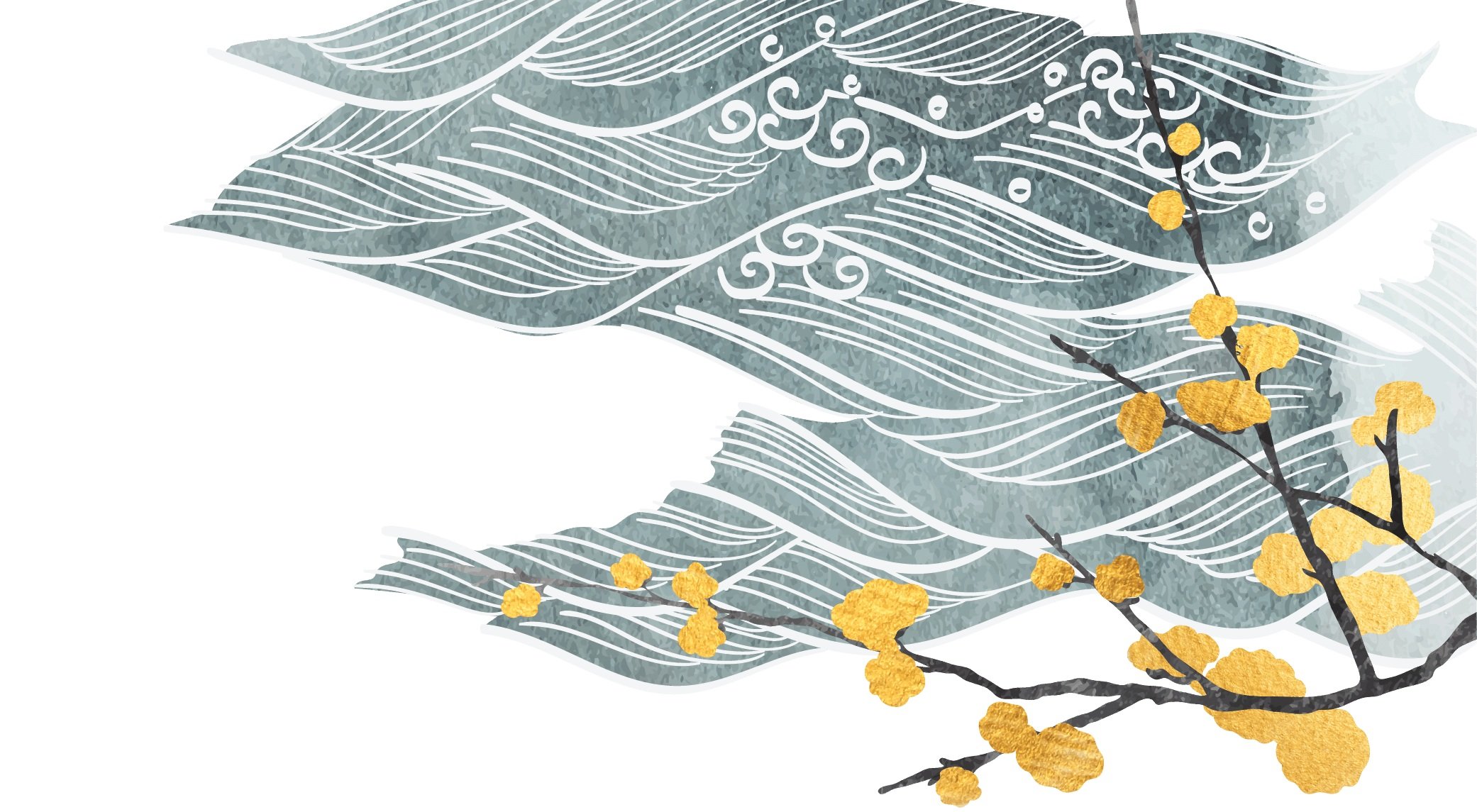
“ If you don’t realize the source of truth, your Buddha Nature, you stumble in confusion and sorrow.
When you realize where you come from, you naturally become tolerant, amused, kindhearted as a grandmother, dignified as a king, immersed in the wonder, you can deal with whatever life brings you and even when death comes, you are ready.”
— Tao Te Ching

Questions? Contact us here or at info@durgaexcursions.com











